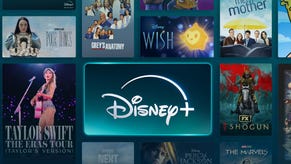Ubisoft on digi-distribution, companion gaming and DRM
Stace Harman sits down with Ubisoft’s VP of digital publishing, Chris Early, to discuss the future of digital content and what happens when things go wrong.
Early echoes recent speculative reports of the anti-piracy measures expected in next-gen consoles, adding: “I think that the most likely possibility is that at a platform level there’ll be some innovation to assist [DRM].”
Amidst the maelstrom of opinion surrounding the recent tribulations of high-street retailer GAME was a persistent murmur that it was the inevitable come to pass, albeit a little sooner than expected. Moreover, many took the opportunity to speculate that digital distribution would greatly contribute to filling the void left by the closure of hundreds of high street stores with nary a bother.
This was naive for numerous reasons, an obvious example of which stares gamers in the face every time they attempt to buy content via their consoles or handheld devices: the digital store fronts and marketplaces of the major platform holders have a long way to go before they can truly be considered fit for purpose.
“They certainly don’t work the best way they possibly could,” ventures Chris Early, Ubisoft’s VP of digital publishing. “They’re good for where they are in this point in time, but they could clearly evolve to be better.
“This is one of the key challenges that the first-parties face that might determine how quickly digital distribution becomes a reality, and if the platform holders can solve issues such as the recommendation and discovery process it could go considerably faster.”
Early goes on to illustrate the nature of the problem of having a large number of products combined with a group of players with disparate tastes and playing behaviour.
“How many PS Store or Arcade games are there?” he asks. “How many can you name? What was out three weeks ago? What if that one three weeks was the one that would have perfectly suited you and now you’ve missed it?
“[The platform holders] know what you play, right? They know what you spend the most time on. This discoverability problem is a key challenge for them.”
Troubled waters
It’s not just the platform holders that face challenges with digital delivery and facilitating access to content. Ubisoft has had its share of obstacles to overcome in recent months in the form of a backlash concerning its DRM and used-game policies, the loose lips of its developers concerning PC market viability and some divisive high-profile digital releases with both From Dust’s PC port and I Am Alive delivering a varied mix of highs and lows.
“For us, the whole question of DRM is one of how we get compensated as a creator of content when someone is enjoying that content,” explains Early, addressing an evergreen topic. “The goal is to find the balancing point so as to do that in a way that doesn’t negatively impact the paying customer. That’s something that, as an industry, we sometimes succeed in and sometimes fail at.”
In looking toward future solutions, Early echoes recent speculative reports of the anti-piracy measures expected in next-gen consoles, adding: “I think that the most likely possibility is that at a platform level there’ll be some innovation to assist [DRM].”
Going on to acknowledge some of the specific issues Ubisoft has faced concerning individual titles, Early admits they have been regrettable, but that they have also been addressed as efficiently as possible.
“With Driver: San Francisco, for example, we had some issues with content activation. We had a good system in place but there was an error in the codes and so I’d say that, yes, we made a mistake – not necessarily in that the system was included in the first place – but that there was a procedural mistake with the codes that were required to activate the content.
“But then what did we do? Within a couple of days we patched it completely out of the game rather than trying to reissue codes and complicate it further. I think people looked at that situation and said, ‘You screwed up, but you took the right approach in solving it.’”
As Early describes the process of assessing the business viability of a potential project, it’s easy to imagine a meeting in which decisions are made concerning timeframes, key features and expected sales vs. the ravages of piracy. Sound business decisions they may be, but it’s difficult not to feel that those same decisions can’t help but to have the potential to negatively impact the overall quality of the finished game.
“How many PS Store or Arcade games are there? How many can you name? What was out three weeks ago? What if that one three weeks was the one that would have perfectly suited you and now you’ve missed it? [The platform holders] know what you play, right? They know what you spend the most time on. This discoverability problem is a key challenge for them.”
“There’s not a policy inside Ubisoft that says, ‘Let’s make a crappy game just to make a buck’,” insists Early. “With that in mind, different products will sometimes achieve different levels of quality.
“Sometimes that’s as a result of the expertise of the team, sometimes it’s the length of time or quality that went into it and sometimes it’s the game design itself. On top of that, games are sometimes received very differently by different publications; I Am Alive is one such game.”
It seems that this is the simple reality of a multinational corporation with talent scattered throughout the world: “The way you might think about Ubisoft is that it’s a single, coherent whole in which knowledge is transferred instantly between all of the pieces of it,” says Early.
“In fact, we have around 28 studios worldwide and sadly there is no ‘instant knowledge transfer’ device. I guess this is a long-winded way of saying I wish it wasn’t the case that some games don’t quite hit the high standard that we set for ourselves, and that’s why we continue to work at these things to make sure we’re launching the best version of a game that we can.”
Future soldier
The industry-wide technology and infrastructure that underpins Early’s role at Ubisoft is in its formative years, and so it’s unsurprising that the VP of digital publishing will only spend so much time focusing on the challenges of the past before turning his attention to the opportunities of the future.
“Companion gaming" is Ubisoft’s next major digital initiative and is one that’s intended to accompany every one of Ubisoft’s core-gaming brands going forward; from the iOS app being developed for Far Cry 3 to the Facebook partner to Ghost Recon: Future Soldier.
“Our companion gaming strategy is focused on allowing players to play games based on the same IP universe across a number of different platforms and devices and to have those games provide some residual value or inter-related benefits,” explains Early.
“So, playing Ghost Recon: Commander on Facebook will unlock items and weapons in Ghost Recon: Future Soldier and that interplay creates a deeper brand engagement for those fans of the Ghost Recon IP.”
The key characteristic of this strategy is that these off-shoots are not intended simply to whet players’ appetites in the build-up to the retail release of the game proper, but to continue to be played alongside it after launch.
“The difference between trans-media initiatives and companion gaming is that the latter actually provides you benefits from game to game and really those benefits are best when you’re playing those games concurrently,” highlights Early.
“There have been some other companies that have provided one-off unlocks, like, ‘Play the Facebook game and unlock the suit of armour’ or whatever, and that draws people in to play to begin with but there’s really no reason for them to continue to play beyond that initial incentive.
“What we’re really looking to give fans of a brand is the ability to spend as much time as they like with it across different platforms that all provide a centralised benefits.”
There will be those whose eyes light up at the thought of what companion gaming might deliver, who will be happy to have the opportunity to indulge in their favourite brand whenever and wherever they want: at home on a console or PC, on the move with a smartphone app and at while sat at a desk at work or school via a social network and web browser.
Others will roll their eyes, predicting a deluge of exploitative cash-ins designed to push multi-million pound IPs down the throats of anyone with a web-enabled device whilst detracting from the core game experience.
In this, as in everything, one cannot hope to please all of the people, all of the time. That’s a maxim of which Ubisoft, along with every video game player, creator, publisher and retailer, should be ever mindful; lest they risk being reminded of the hard way.










